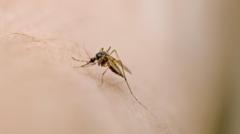Research from leading experts highlights a drastic increase in child fatalities linked to antimicrobial resistance (AMR), emphasizing the urgent need for improved healthcare measures and antibiotic stewardship.
Alarming Rise in Child Mortality Linked to Antibiotic Resistance

Alarming Rise in Child Mortality Linked to Antibiotic Resistance
A new study reveals that over three million children died in 2022 due to infections resistant to antibiotics, predominantly affecting regions in Africa and South East Asia.
More than three million young lives were reportedly lost globally in 2022 due to infections resistant to antibiotic treatment, as highlighted by a study from prominent child health experts. The regions hardest hit include Africa and South East Asia, where a pronounced risk of antimicrobial resistance (AMR) has emerged. AMR manifests when the microbes that cause diseases evolve, rendering standard antibiotic treatments ineffective.
This study draws from a range of data sources, including information from the World Health Organization (WHO) and the World Bank, providing a stark statistic that underlines AMR's effect on pediatric health. The report indicates that there has been an over tenfold rise in AMR-related infections in children within just the last three years, a trend potentially exacerbated by the COVID-19 pandemic.
The misuse and excessive reliance on antibiotics—with increases particularly noted in "watch antibiotics" and "reserve antibiotics" meant for severe infections—have been spotlighted by the lead authors of the study, Dr. Yanhong Jessika Hu and Professor Herb Harwell. For instance, between 2019 and 2021, South East Asia saw a 160% rise in the use of antibiotics that should only be reserved for critical cases, while Africa experienced a 126% increase.
In a worrying trend, if bacterial strains continue to develop resistance against these essential antibiotics, future options for treating multidrug-resistant infections could dwindle to nearly zero. Professor Harwell will be presenting these findings at the upcoming Congress of the European Society of Clinical Microbiology and Infectious Diseases in Vienna. He reiterated the global nature of AMR and the disproportionate impact it has on children, with three million childhood deaths connected to this crisis.
Addressing AMR is a multifaceted challenge that cuts across various sectors of healthcare and human life, according to Professor Harwell. The WHO identifies AMR as a critical global health threat, noting that the best strategy to combat resistant infections involves preventive measures, including better immunization, sanitation, and hygiene practices.
Dr. Lindsey Edwards, a microbiology lecturer at King's College London, indicates this troubling increase should act as a wake-up call for global health leaders. She cautioned that without significant intervention, AMR could reverse substantial advancements in child health, particularly in vulnerable populations.






















